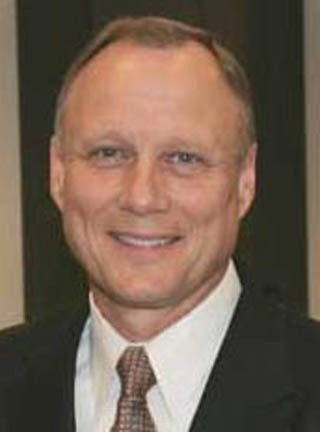
NEW ORLEANS (BP) — We have two American flags folded and stored in a closet at the farmhouse in Texas, the kind of flags presented to surviving family members on behalf of the president of the United States at the memorial service for a veteran of military service.
The flags have small paper tags wired into the top grommet with the name of the soldier for whom it was presented. I checked the tag as I unfolded the flag a month ago and saw the name of Fred Conradt. I thought about Uncle Fred — his nephews and nieces called him Uncle Dub — as I clipped the flag to the rope on the flagpole in the middle of the front yard.
The flagpole, maybe 20 feet high, is a 2-inch metal pipe set up by my father-in-law Jack Hamilton, another veteran of World War II. He welded loops on the pipe, the very top and three feet off the ground, equipped with small pulleys. He threaded white cotton rope through the pulleys and fitted it with spring-loaded clips. American flags have flapped in the breeze in front of the farmhouse off and on for 30 years.
The farmhouse itself was built by Alvin McNeal and Cordie Francis Benningfield Rose in 1954. Some 12 years earlier they sent their son Alton off to war. He fought and died in the Pacific Theater, a young man with a new wife and a bright future. Alton gave on our behalf, as Abraham Lincoln famously said in his Gettysburg Address, “the last full measure of devotion.”
I picked a stubborn spider from the bottom sprocket, unhooked the rope and pulled the flag, hand over hand, to the top of the pole. Uncle Dub would have been proud to see his flag unfurled in that seasonal breeze from the southwest.
We shared an emotional moment once. I cannot remember what prompted it. Uncle Dub began to talk about his military service. At first he was composed and reflective. But then I saw a thought, a memory from the war, enter his mind and cloud his vision. It pulled him down inside himself, that picture, that sound — whatever it was. It clamped his throat and throttled him like a giant invisible hand.
I heard him say — he could barely get it out — “Oh, David, the children, the children” — and that was all. He could not speak of the horror that visited him then. But I knew that the faces and figures of children were passing through his mind. Little hands were reaching out to him from some dusty village in another time and place. He grieved for them still, decades later, these children trapped in the fury of war.
Fred and Monnie Conradt never had children of their own, adopted or biological. But they devoted their lives to the care of children. For years Fred was chief administrator of the West Texas State Children’s Home in Pyote. Abandoned, neglected and abused children became his sons and daughters. I saw that powerful memory of children in crisis bring him to silent tears, and I wonder if maybe he found his calling and his life’s work on the battlefield.
Soldiers lay down their lives sometimes. But more often the battlefield claims their peace of mind, their inner tranquility and their sense of hope and a future. More than 200 veterans are among the homeless here in New Orleans. They are disproportionately represented among the population on the fringes of our society. In part it is the battlefield, the PTSD, the things they cannot articulate, that drive them to the shadows.
We who have not experienced the battlefield cannot really understand this blanket of pain that sometimes falls upon our veterans. It can be disorienting, debilitating, this experience of armed conflict.
We who have been spared the horrors of war stand in great debt to the soldiers we honor today. Brave and free, they were willing to go and face our enemy. Some of them bear this mantle of sorrow as the legacy of war, the price they paid to protect us all and preserve our liberty.
I saw Old Glory flying high and proud, the breeze tapping those clips against the pipe. I dropped my head in a surge of gratitude for the God who made us free and the soldiers who do their duty daily to keep our star-spangled banner lifted above the fray.

















